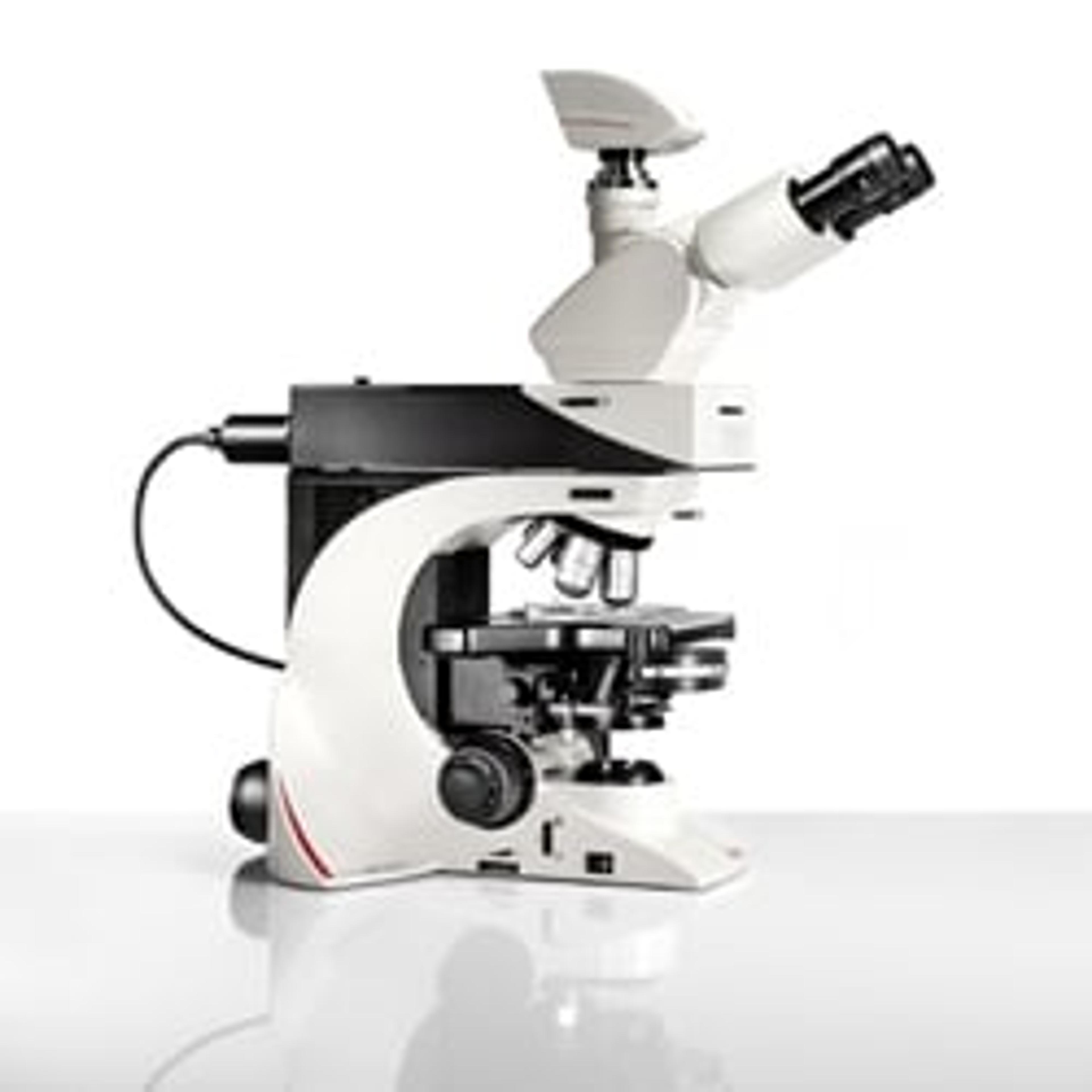Leica Microsystems Introduces the Leica DM2500 LED Microscope for Clinical Laboratories and Research Applications
Brilliant Transmitted Light Imaging Due to Powerful Ultra-bright LEDs
5 Jul 2015The launch of Leica’s new DM2500 LED Microscope sees the completion of it's Leica DM1000 to 3000 series. All the models in this series are now available with LED illumination. The Leica DM2500 LED is suitable for demanding tasks in clinical laboratories as well as for research applications in microbiology, developmental biology, cytology, zoology, botany, and more.
The ultra-bright LED illumination of the Leica DM2500 LED was developed in cooperation with pathologists and research scientists and offers a constant color temperature at all light intensities, enabling particularly fine differentiation of colors in stained specimens. The LED illumination is also suitable for unstained or low-contrast specimens and high magnifications, e.g. for light-intensive phase or differential interference contrast applications. Users benefit from the brightness and color accuracy of the LED illumination in all other transmitted light contrasting techniques, such as brightfield, polarized light, and darkfield. LEDs offer the general advantages of no sample heating, low energy consumption, and long life time.
"The specially-developed LED illumination makes the Leica DM2500 LED an ideal microscope for challenging experiments requiring different contrasting techniques and for users who prefer a manual instrument," emphasizes Product Manager Dr. Jasna Gilbert. "The Leica DM2500 LED has now completed our DM1000 to 3000 series. All the models are available with either LED or halogen illumination. Besides the new illumination, the Leica DM2500 LED offers all the other benefits of the microscope series such as the unique ergonomics design for user comfort and convenience."
The ergonomic design of the Leica DM2500 LED comprises height-adjustable focus knobs and various ergo modules for customizing the microscope to the individual user. In addition, the new microscope features easy operation, excellent optics, high reliability, and flexible configurations for different applications and requirements in everyday use.

